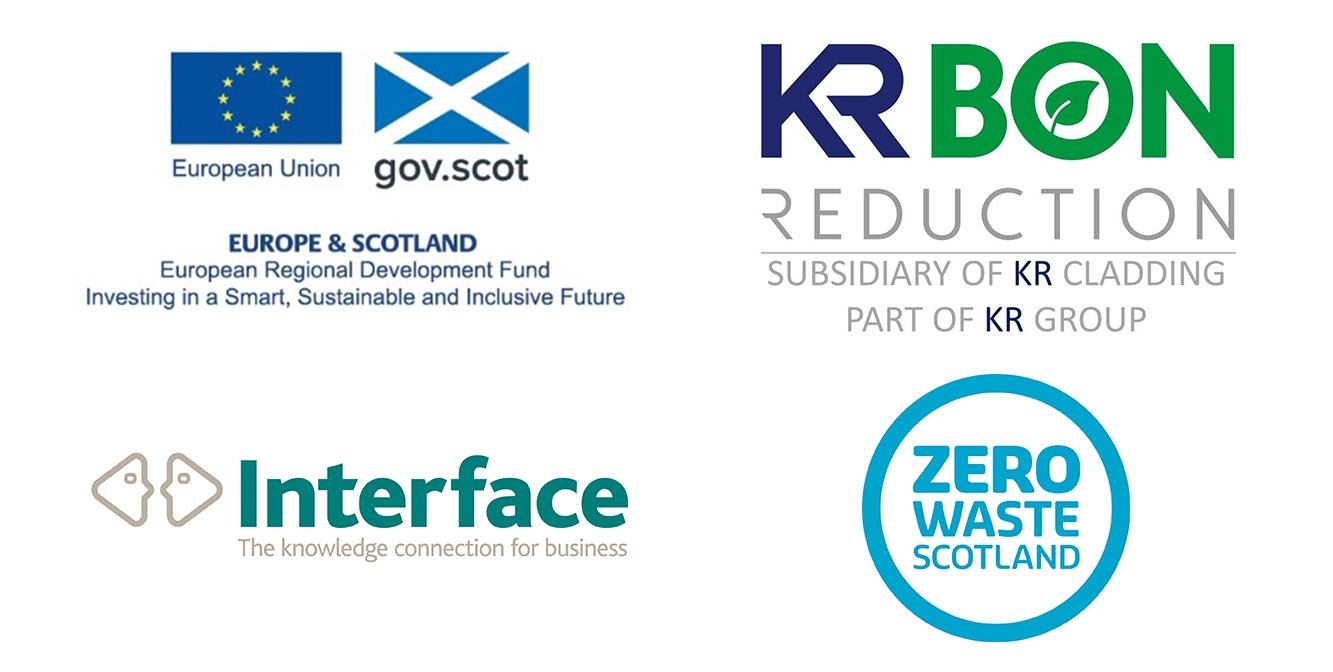Circular economic solution to cladding panel waste
In 2020, RGU created a bespoke cutting machine to reduce waste from buildings being repaired, refurbished, or demolished as part of an Innovation Voucher collaboration with KR Cladding Systems Ltd.
The cutting machine formed part of KR Cladding’s circular economy drive to repurpose polyisocyanurate (PIR) board waste from disused composite cladding panels which previously could only be disposed of via landfill.
As a result of the Innovation Voucher collaboration, PIR board waste can now be repurposed as rigid insulation board in construction projects—between cavity walls, and in floor and roof joists. Offcuts can also be marketed to the fishing industry to insulate fishing vessels’ refrigeration areas.
Andrew Dickson, Manager for Business Development at Zero Waste Scotland, said: “This initiative from KR Cladding is a fantastic example of maximising the value of existing resources. All too often, we label old or unused materials as waste, and it ends up in landfill. However, in a more circular economy, materials are fed back into the production cycle.
“As a nation, we must dramatically reduce our consumption of raw materials if we want to play our part in combatting climate change as our research shows that around four fifths of Scotland’s carbon footprint comes from the products and materials we manufacture, use and throw away. That is why Zero Waste Scotland is proud to support KR Cladding in their innovation journey towards becoming circular.”
KR Cladding commenced the second phase of its circular economy project in January 2022, named KR Bon Reduction—with thanks to £130,250 of funding from Zero Waste Scotland’s Circular Economy Investment Fund. This resulted in the employment of a Product Development Manager, a full time Cladding Panel Separator, and the purchase of specialist cutting equipment, in addition to the imminent creation of a repurposing facility for the PIR board.
KR Bon Reduction aims to increase the volume of PIR panels it acquires from businesses generating this waste and highlight the benefits of this circular economic solution across five years. These benefits include:
- 7,736 tonnes of CO2 (equivalent) prevented—the equivalent of removing 4,460 cars from UK roads
- 675 new homes could be insulated with an estimated cost saving of up to £1.88 million pounds
- 2,498 tonnes of waste diverted from landfill—the equivalent of 8 Olympic swimming pools
Administered by Interface—the knowledge connection for business in Scotland—the Innovation Voucher scheme is one of several funding opportunities from The Scottish Funding Council which offset the cost for businesses looking to collaborate with Scotland's universities.
Professor James Njuguna says: “The success of this Innovation Voucher project is a golden example of an RGU-industry collaboration opportunity: developing a circular economy innovative idea into new engineering products. The School of Engineering, in particular, has been very successful in supporting business in turning ideas to business opportunity at any stage in the value chain.”
Cathy Higginson, Business Engagement Executive at Interface (Aberdeenshire), adds: “Interface is delighted to have helped KR Cladding Systems Ltd by matching them with academic expertise from Robert Gordon University. This innovative collaboration demonstrates that every industry can introduce products, processes and services which have benefits for the environment and strengthen the circular economy.”
If you would like to collaborate with RGU and discuss ways in which the University can help you to develop new products or services, enhance skills, and achieve your business’s goals, then contact business@rgu.ac.uk
To supply KR Bon Reduction with used cladding panels, or if you are interested in purchasing reclaimed PIR boards, please get in touch via info@krgrp.co.uk.

